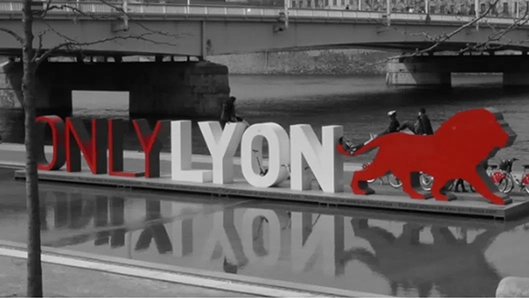Every one of us is very much concerned about fairness, not only in our personal lives, but also in professional work settings. With that said, employees’ complaints regarding unfair pay structures, supervisors’ discrimination, and unequal appreciation, are common challenges for organisations.
Johannes Siegrist has drawn managers’ attention to the importance of social reciprocity and contractual fairness in employment. A perception of unfairness arises when effort (work assignment) does not match equal rewards (e.g., money, career, or support) and this lack of reciprocity may have serious consequences for employees’ health and wellbeing.
In a recent study published in the International Journal of Public Administration[1], my co-authors and I examine how organisations’ unfair practices can have deleterious effects on employees in the workplace. Employees who perceive that they are being treated unfairly in the workplace can have low morale, reduced productivity, job dissatisfaction and an increased intention to quit. On the other hand, when employees feel they’re treated fairly at work, they have more positive attitudes towards work, perform at higher levels, and are better teammates and colleagues.
As unfairness at work has become more mainstream, our findings could help organisations decrease employees’ perceptions of unfair treatment at work, create equitable and transparent systems, and implement processes that allow fairness for all.
The impact of unfairness
Our paper looks at two approaches: organisational injustice and effort-reward imbalances as they are concerned with fairness and unfairness in the workplace. The organisational (in)justice approach places its main emphasis on fair procedures of treating employees, on the provision of a fair distribution of resources, and on providing an appropriate flow of information and communication within organisations.
The effort-reward imbalance approach is concerned with stressful features of the work contract, with a focus on the notion of social reciprocity in costly transactions. In this model, three basic types of reward are distinguished: salary or wage; career promotion and job security; and esteem or recognition.
Both organisational justice and effort reward imbalance have been applied to study elevated risks of stress-related disorders, such as burnout and depression, cardiovascular disease, and sickness absence. In particular, both unfairness approaches have been associated with a variety of stress-related outcomes with intentions to leave organisations, job dissatisfaction, and deviant behavior.
We conducted comparative research among employees of France and Pakistan, to test the cultural differences of associations of unfairness at work with distress and turnover intentions.
Theoretical importance
Unfairness at work is an important concept in understanding and predicting employees’ behaviour. Researchers asked 824 employees in Pakistani and French firms to rate how unfair managers had been to them, and what was the impact on their work from being treated unfairly.
Our findings highlight that unfairness at work plays an important role in predicting employees’ job-burnout and turnover intention. When employees perceive that their managers treat them unfairly in an organisational context, observed negative outcomes include increased job-burnout and higher turnover. When employees do not receive a reward commensurate with their efforts, they feel that they do not have an appropriate level of resources compared to the work demanded, and therefore are more likely to be victims of job-burnout and may intend to leave or quit their organisation.
In particular, our cross-country analysis suggests that a higher degree of perceived injustice goes along with a higher level of burnout and higher turnover intentions. Similarly, the experience of failed reciprocity at work is associated with higher burnout and more frequent turnover intentions.
We also observed somewhat stronger effects of organisational injustice on burnout and turnover intentions in the Pakistani sample, but relatively stronger effects of effort–reward imbalance on these indicators among French employees. Our findings confirmed a comparable strength of associations for the two unfairness approaches.
Dealing with unfairness
In our study we demonstrate that fair treatment at work is an essential tool for organisations since individuals compare the outcomes they receive with their co-workers and with their own input, and these comparisons influence their attitudes and behaviour.
Indeed, high effort compared to low rewards for an individual can further enhance the negative transactions between subordinates and managers, e.g., by lack of motivation, destructive behaviour, or turnover intentions. Our findings suggest that organisations should implement human resources policies and practices by focusing on the equilibrium between effort and reward that increase employees’ perceptions of fair treatment to avoid harmful work-related consequences.
Our results clearly demonstrate that diminishing the imbalance by distributing the allocation of rewards more appropriately to those who deserve it must be considered a crucial step. Furthermore, realistic information about the organisation’s policies of distributing salaries and wages can also reduce the perceptions of unfairness, because they inform why certain procedures have been followed and why the rewards are distributed differently among employees.
Since employees are a highly valuable resource, organisations should invest in them. Our study has lessons for organisations on how to prepare fair procedures and policies based on individuals’ beliefs, using biased-free universal criteria that can be appraised as being fair by all employees. Moving forward, multinational firms also need to be flexible when generalising peoples’ values, taking knowledge derived from cultural values into account. Considering an ethical perspective, as organisations expect that employees have to behave ethically in the workplace, similarly, it is a moral duty for organisations to treat their employees in a fair way.
References
[1] Ghulam Murtaza, Olivier Roques, Johannes Siegrist & Qurat-ul-Ain Talpur (2021) Unfairness and Stress—An Examination of Two Alternative Models: Organizational-Justice and Effort–Reward Imbalance, International Journal of Public Administration, DOI: 10.1080/01900692.2021.2009854





